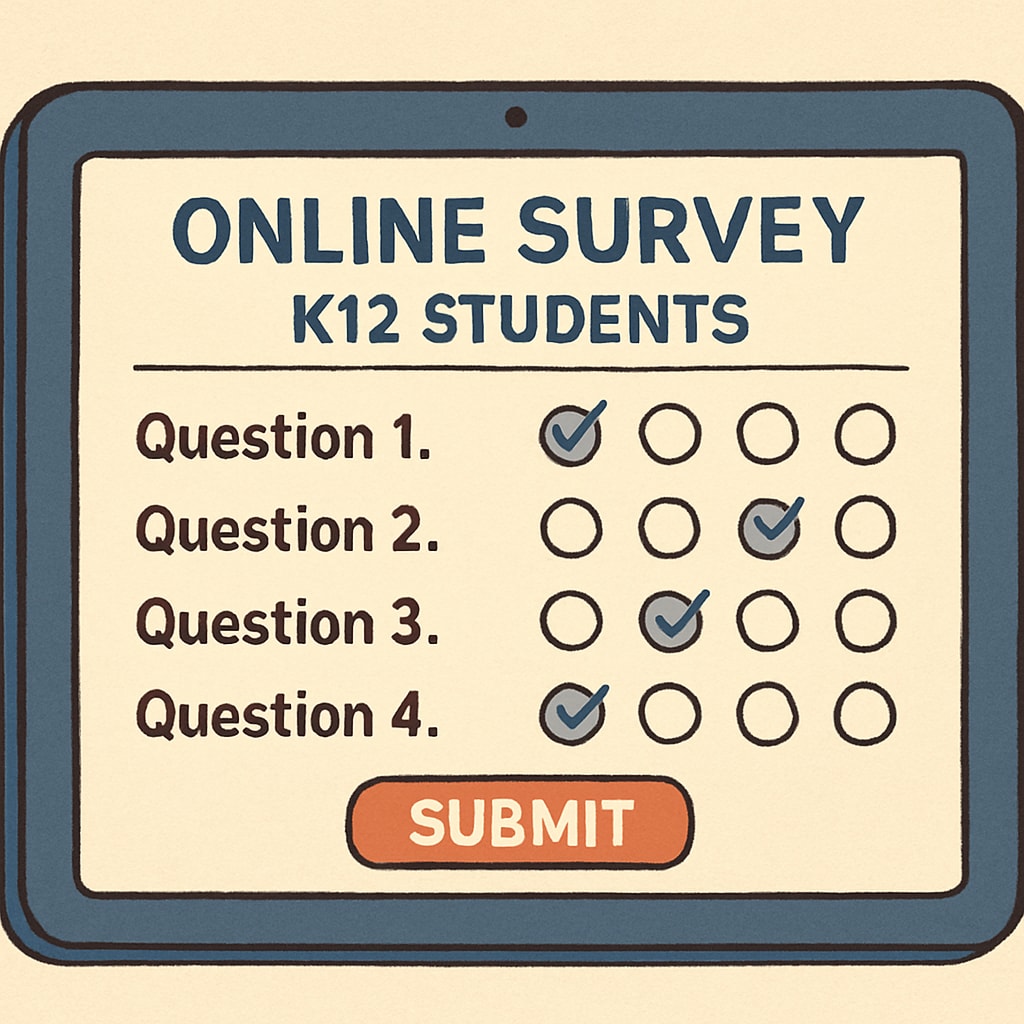In the realm of media research, survey challenges, and academic assistance, conducting effective questionnaires within K12 education studies presents significant hurdles. Researchers often struggle with low response rates, biases in data collection, and difficulties in engaging participants. These challenges not only affect the quality of research outcomes but also hinder the broader goal of fostering collaborative academic communities. This article dives into the origins of these issues and proposes solutions to build a supportive ecosystem for educational research.

Understanding the Challenges in K12 Survey-Based Research
Survey-based research in K12 education faces unique obstacles. Unlike studies involving adult participants, researchers must navigate ethical considerations, parental permissions, and the limited attention spans of young respondents. Additionally, logistical barriers such as scheduling surveys during school hours and ensuring anonymity add to the complexity.
Some of the primary challenges include:
- Low Participation: Students and their parents often feel disengaged or lack motivation to complete surveys.
- Response Bias: Participants may provide socially desirable answers rather than honest responses, skewing results.
- Data Access: Schools may restrict access to students or impose lengthy approval processes for research.
These factors collectively impact the reliability and validity of data, making it harder for researchers to draw meaningful conclusions about pressing K12 education topics.
Innovative Solutions to Enhance Data Collection
To address these challenges, researchers and academic institutions must adopt innovative strategies. Collaboration and community engagement are key to overcoming barriers in survey-based research. Below are some actionable solutions:
- Engaging Stakeholders: Partnering with schools, parents, and students to create a sense of shared purpose can increase participation rates. For example, explaining the potential benefits of the research to educational policies or classroom practices can motivate involvement.
- Technology Integration: Digital platforms such as online surveys or educational apps can simplify data collection and make it more engaging for students. Tools like Google Forms or SurveyMonkey ensure ease of use and quick responses.
- Providing Incentives: Offering small rewards, such as certificates or tokens, can encourage participation while maintaining ethical standards.
Moreover, researchers should focus on designing concise and age-appropriate questionnaires to keep younger participants engaged.

Building a Collaborative Academic Ecosystem
Beyond individual efforts, there is a need to establish a collaborative ecosystem that supports educational research. Such a system would involve researchers, educators, parents, and policymakers working together to streamline the process of conducting surveys and sharing findings.
Key components of this ecosystem could include:
- Open Data Platforms: Creating accessible databases where researchers can share anonymized survey data to reduce redundancy and promote transparency.
- Research Networks: Forming academic networks or forums where scholars can exchange best practices, seek advice, and collaborate on large-scale studies.
- Ethics Committees: Establishing dedicated boards to review and approve K12 research proposals swiftly while ensuring ethical compliance.
Such initiatives would not only enhance the quality of educational studies but also foster a sense of community within the academic world.
Conclusion: Toward a Brighter Future for K12 Education Research
Addressing the challenges of media research, survey challenges, and academic assistance in K12 education requires a multifaceted approach. By engaging stakeholders, leveraging technology, and building collaborative ecosystems, researchers can overcome current obstacles and improve the quality of their work. As a result, the findings from these studies can drive meaningful changes in educational policies and practices, benefiting students, educators, and society as a whole.
Through collective efforts, the academic community can transform the landscape of K12 research, turning challenges into opportunities for growth and innovation.
Readability guidance: The article uses short paragraphs, lists to summarize key points, and transitions like “however” and “therefore” to ensure smooth reading. The use of active voice and concise sentences enhances clarity and engagement.


